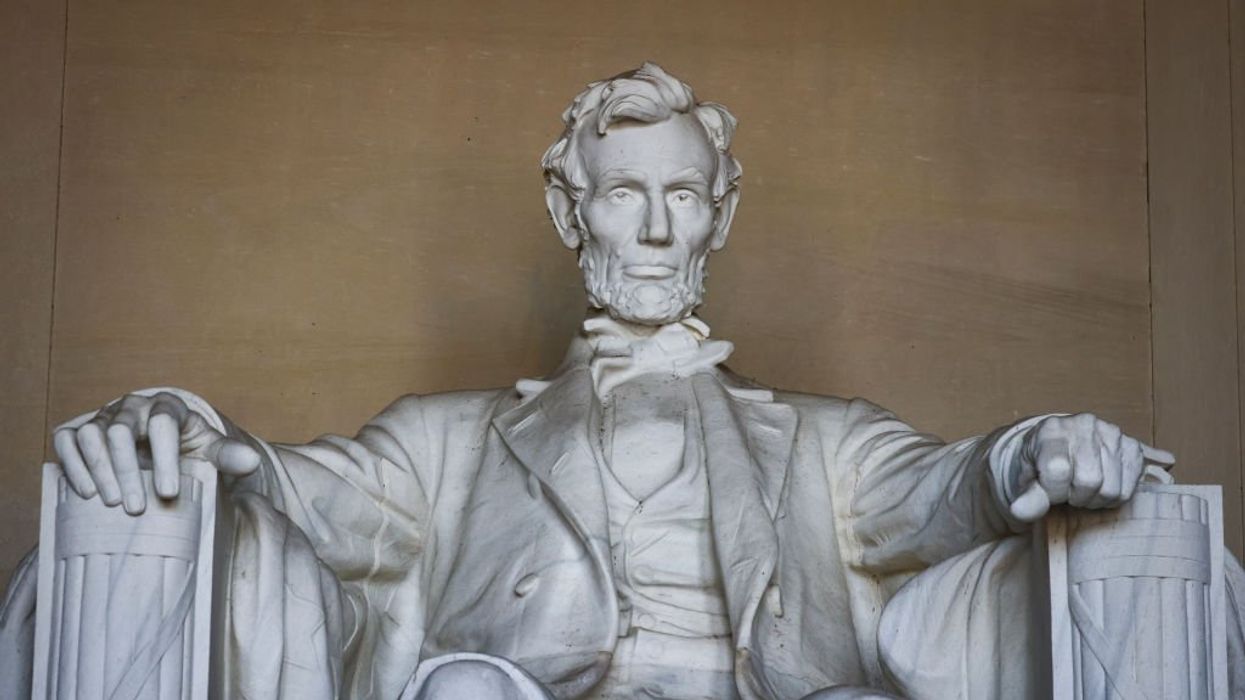
Getty Images/NurPhoto

The sculptor's enduring work reminds us of what today's public art lacks.
Currently looming over the Los Angeles skyline, such as it is, are three half-finished skyscrapers. The Chinese company building them ran out of money and abandoned the project in 2019. Since then, the towers have attracted a steady stream of spray-painting vandals eager to make their mark.
Whatever one thinks of graffiti, its presence so high above the city is at least a testament to the perpetrators' persistence and physical daring. And it makes a statement of sorts about municipal mismanagement and the breakdown of public order.
Over the last few decades, we've been taught to appreciate this onetime symbol of urban blight as art. But if it is art, it's the modern variety that takes "self-expression" as its highest value and requires us to overcome our instinctive response to beauty.
American sculptor Daniel Chester French (1850-1931) sought to hone this instinct rather than suppress it. “Look for beauty, not ugliness,” he once said when asked what maxims he lived by. “Look for goodness, not evil. Look for cheer, not trouble.” This approach served French well as one of America's foremost public artists and most potent myth-makers.
This kind of sunny disposition is unlikely to help the aspiring artist of today, when it's widely assumed that art's proper function is to deflate myth. Yet we can no more eradicate our human need for myth than we can dispense with religion. Channeled properly, myth can unite and inspire, while leaving ample room to disagree about the history upon which it is based.
Consider French's most famous piece, the Lincoln Memorial's massive seated figure of our 16th president. It's one of those works so familiar to us that it almost doesn't seem to have involved any art at all; this is simply what we think of when we think of Abraham Lincoln.
Yet if we can manage to look at it anew, we can appreciate the magnitude of French's achievement: turning an extraordinary yet all-too-human leader into a lasting reminder of our debt to the past and our hope for the future.